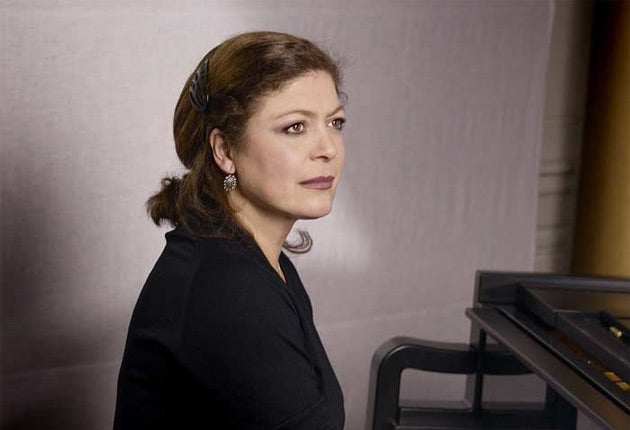Brigitte Engerer, Sintra Festival, Lisbon

The garden of a manor house in Sintra, in the misty hills above Lisbon, may seem a long way to go to hear Chopin garnished with birdsong, but attendance at Sintra´s exquisitely civilised music festival was never exactly a trial.
Founded half a century ago by the redoubtable Marquesa de Cadaval – who presided over its proceedings until her death at 97 – this annual event has always flown the same flag whatever the political weather. The Marquesa defied the fascist Salazar regime to import droves of top Soviet musicians, and her Russophile policy survives.
The opening piano recital was by Brigitte Engerer, who, though French, is in pianistic terms a Russian through and
through: she spent her formative years under Neuhaus´s tutelage at the Moscow conservatoire, where she acquired the forceful expressiveness which is her hallmark. She maintains her Russian links through a duo partnership with Boris Berezovsky, and now coaches lucky aspirants in Paris.
Opening with a series of Chopin Nocturnes, she created more magic than anything we have heard in the Southbank´s Chopin series so far, barring the amazing recital by Nikolai Demidenko. Each of these pieces is a drama self-contained and complete, and this was how she played them: here we were a million miles from the salon pianism to which Yundi Li reduced then in his Southbank recital. Not only was Engerer´s sound big: each drama was on a grand scale, with each note weighted and balanced with fastidious authority. Familiar Nocturnes like the E flat major came across with an unfamiliar freshness; mysterious ones like the C sharp minor had their mystery intensified. The Opus 32 Nocturne in B major is usually presented as a serene outpouring with a slightly bitter final twist: Engerer gave the opening a ghostly quality, and turned the harsh flourish at the end into a series of hammer-blows from fate. For the D flat major she made the piano a dark echo-chamber, and her sound was so huge in the majestic Opus 48 No 1 that even in this sylvan setting the air felt filled to bursting. The second half of her recital was devoted to Schumann, with a brilliantly characterised `Carnaval´, each of whose contending voices got its own particular touch on the keyboard.
All of which raises a question: why is this great pianist never heard in London?
Join our commenting forum
Join thought-provoking conversations, follow other Independent readers and see their replies
Comments